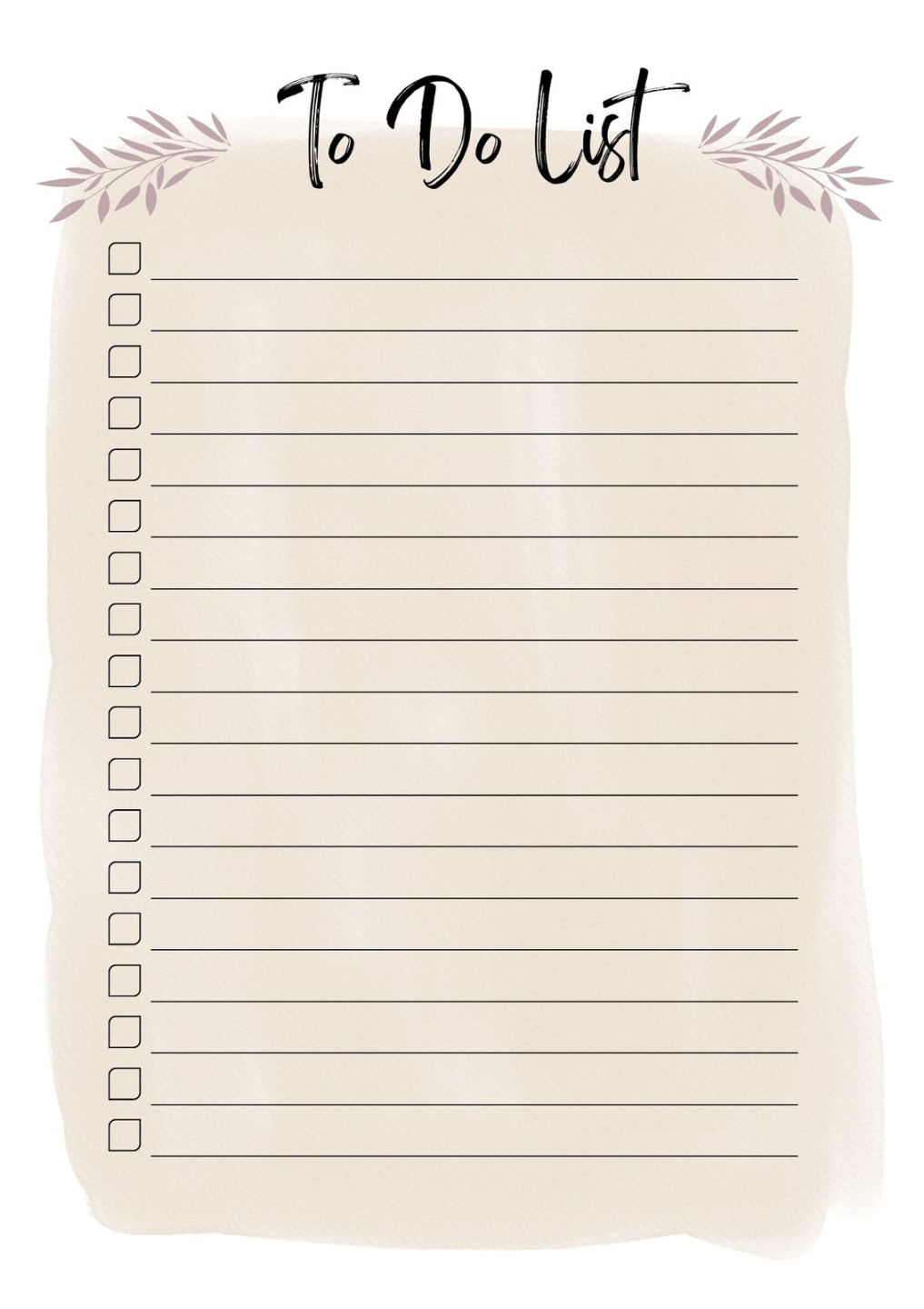A blank to-do list template is a versatile tool that can be customized to suit various personal and professional needs. It provides a structured framework for organizing tasks, setting priorities, and tracking progress. When designing a professional blank to-do list template, it is essential to consider elements that convey professionalism and trust.
Design Elements for a Professional Blank To Do List Template

1. Typography: Choose fonts that are clean, legible, and easy to read. Avoid overly decorative or difficult-to-read fonts. Sans-serif fonts like Arial, Helvetica, or Roboto are often good choices for professional documents.
2. Layout: A well-organized layout is crucial for a professional to-do list template. Use clear headings and subheadings to divide the template into sections. Ensure that the spacing between elements is consistent and visually appealing.
3. Color Scheme: Select a color scheme that is professional and easy on the eyes. Avoid overly bright or contrasting colors that can be distracting. Consider using a neutral color palette with subtle accents.
4. Branding: If you are creating a to-do list template for a specific brand or organization, incorporate your branding elements into the design. This can include your logo, colors, and typography.
5. Clear Structure: The template should have a clear and logical structure that is easy to follow. Include sections for task prioritization, due dates, and notes.
6. Flexibility: A good to-do list template should be flexible enough to accommodate different types of tasks and projects. Consider including options for customizing the template, such as adding or removing columns.
7. White Space: Use white space effectively to create a visually appealing and uncluttered design. Avoid overcrowding the template with too much information.
8. Alignment: Ensure that all elements are aligned consistently. This can help to create a sense of order and professionalism.
9. Consistency: Maintain consistency throughout the design in terms of font size, spacing, and color usage. This will help to create a cohesive and professional look.
10. Accessibility: Design the template with accessibility in mind. Use appropriate font sizes and colors, and provide alternative text for any images.
Additional Considerations
Print-Friendly Format: If the template will be printed, ensure that it is formatted in a way that is easy to read and print clearly.
By carefully considering these design elements and additional factors, you can create a professional blank to-do list template that is both visually appealing and functional. A well-designed template can help you stay organized, productive, and achieve your goals.